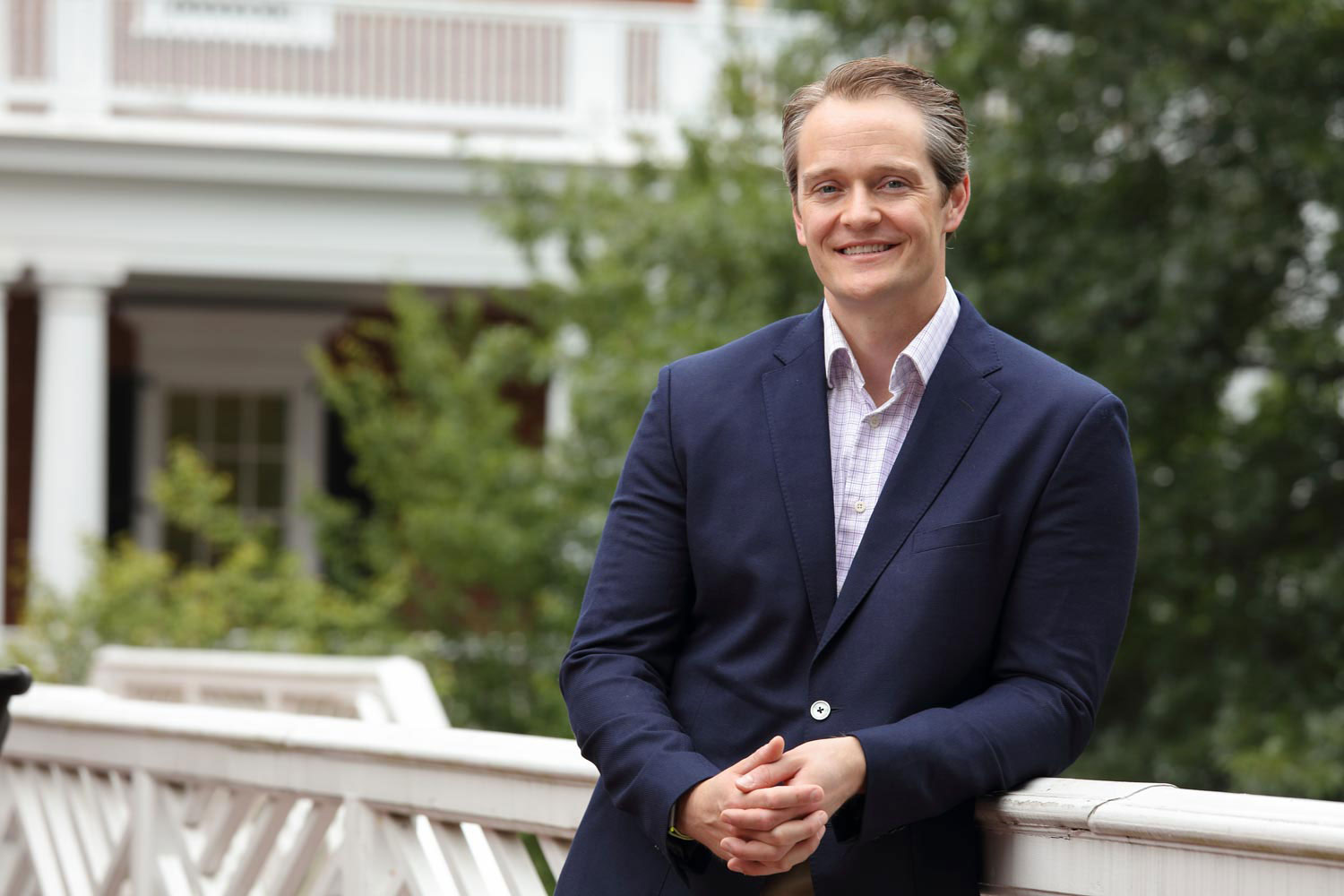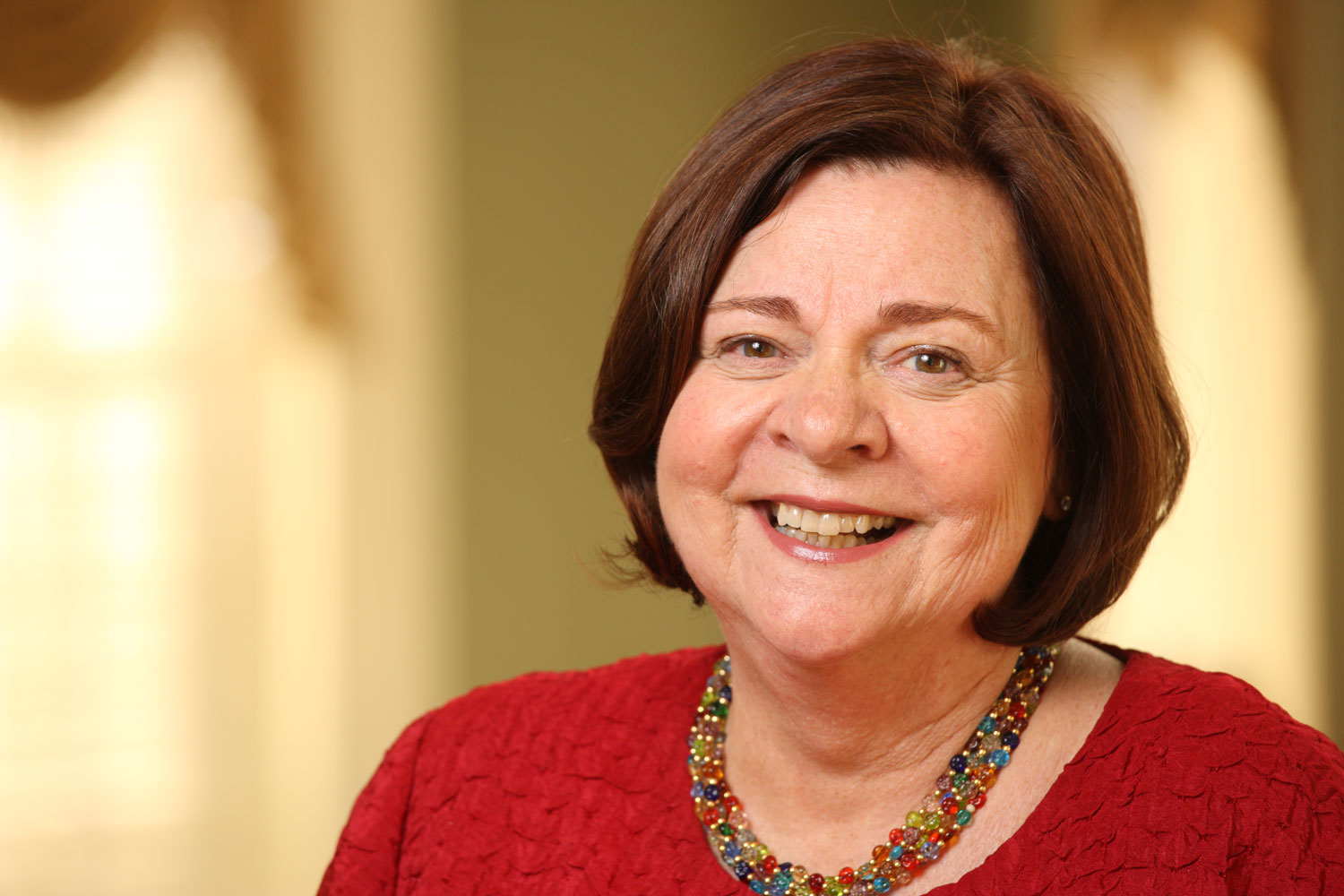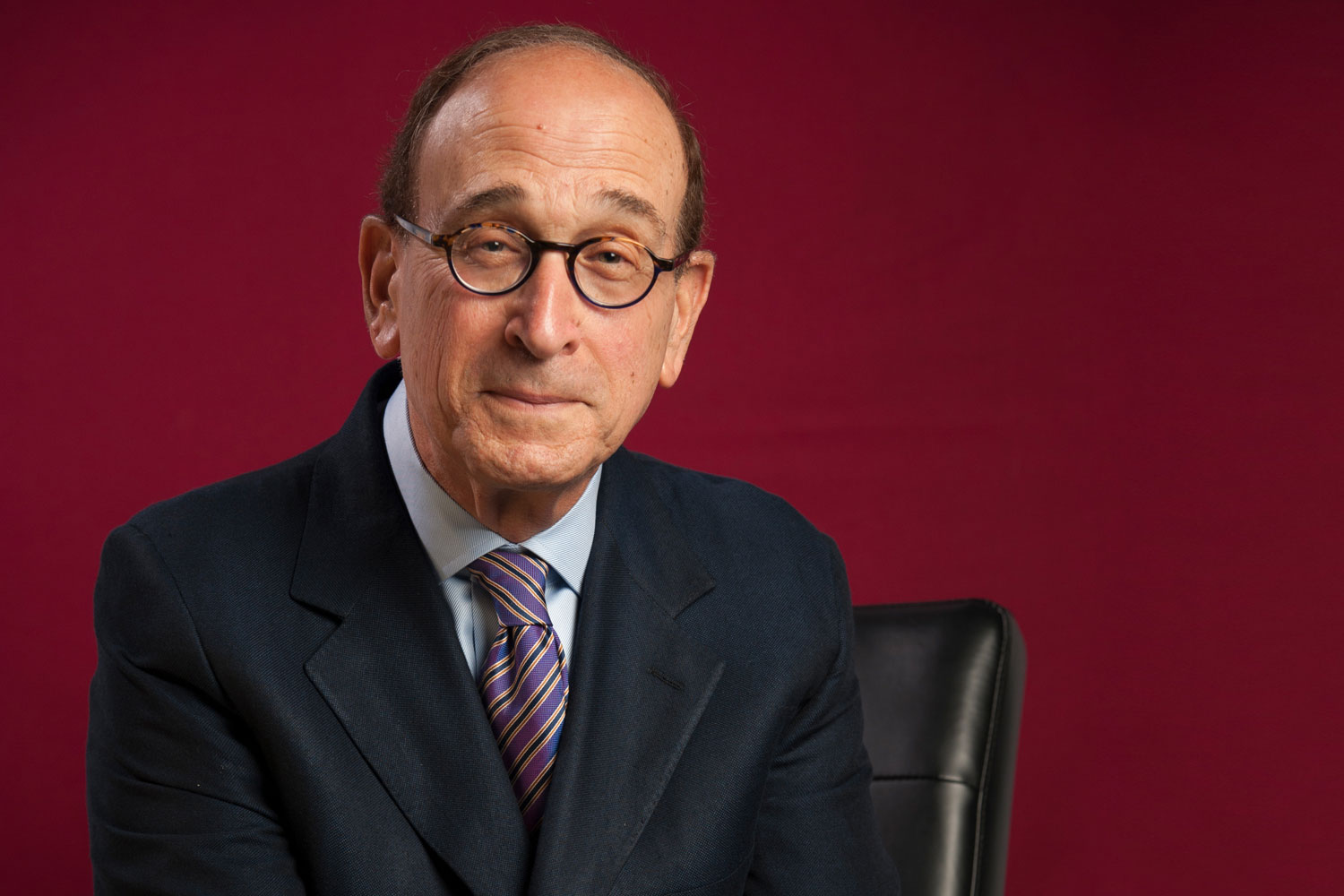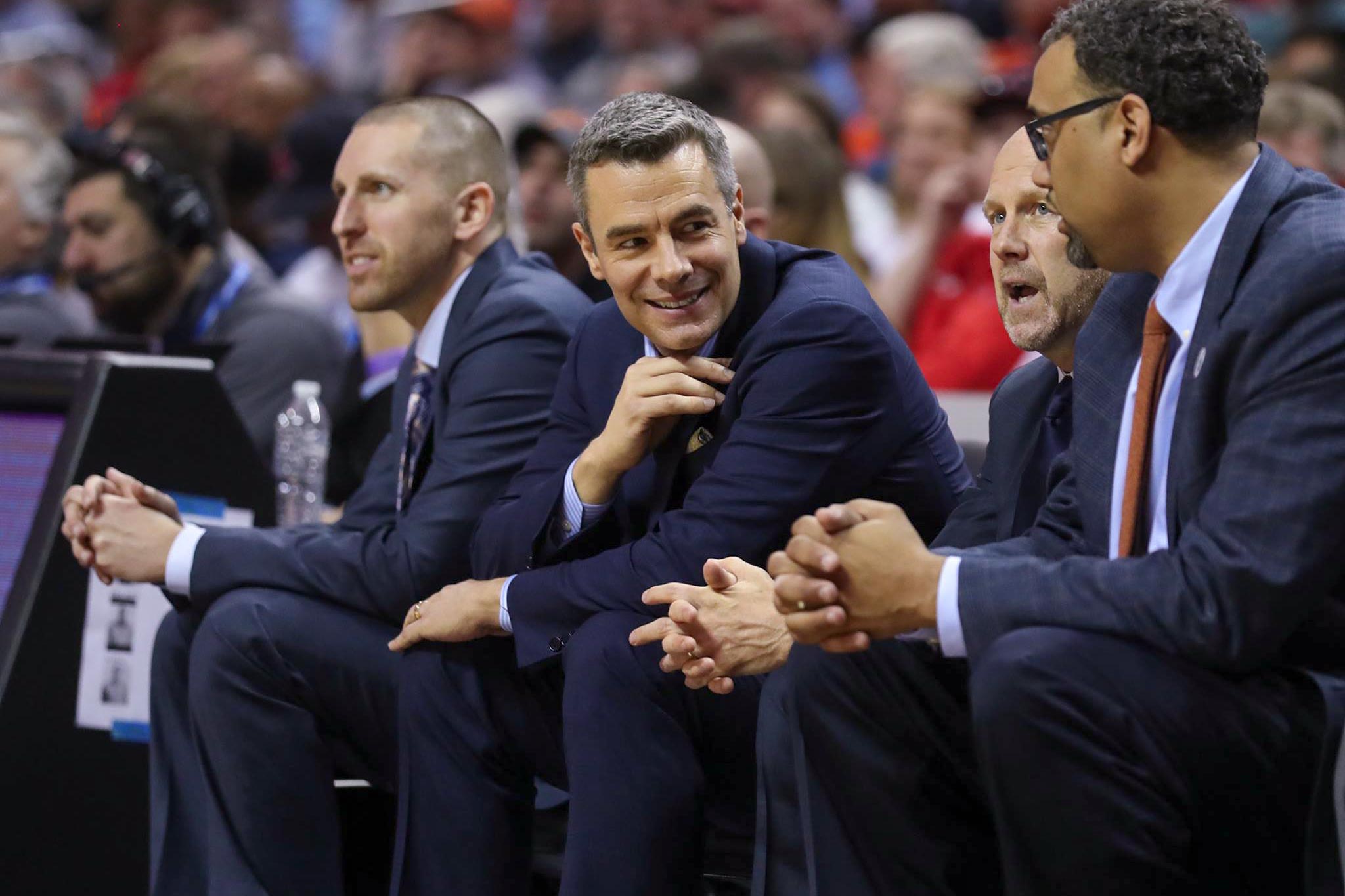University of Virginia men’s basketball coach Tony Bennett has built his program atop what he refers to as the “five pillars”: humility, passion, unity, servanthood and thankfulness.
The pillars seem to be holding up pretty well. Bennett’s squad earned a No. 1 seed in this year’s NCAA Tournament, and both current and former players have earned accolades not just for their play, but for their commitment to academics and community service.
Current player Jack Salt was named to this year’s All-ACC Academic Team, for example. Former players Malcolm Brogdon – the 2017 NBA Rookie of the Year – teamed up with fellow ’Hoo Joe Harris – who won this year’s NBA three-point contest – to launch Hoops20, an initiative raising money to build wells in East Africa, modeled after UVA football star Chris Long’s “Waterboys.”
As UVA gets ready to kick off tournament play against Gardner-Webb University on Friday afternoon, five UVA Darden School of Business faculty members took a closer look at Bennett’s five pillars and why they work so well – on the court and in life – for the school’s “Ideas to Action” blog. Here’s what they had to say.
Humility: Know Who We Are
Darden professor Sean Martin studies the impact of class and socioeconomic status in the workplace and is the co-author of “Echoes of Our Upbringing: How Growing Up Wealthy or Poor Relates to Narcissism, Leader Behavior and Leader Effectiveness.”

Sean Martin is an associate professor focused on leadership and organizational behavior. (Photo by Tom Cogill)
He said that flashy or selfish play might be fun in the short term, but harmful in the long run.
“Narcissistic teammates tend to be flashy and demonstrate self-confidence and comfort with risk-taking – and sadly, these traits may lead to the initial perception that they are impressive,” Martin said. “But studies show that they are also more likely to disparage others, take more than reasonable credit, hog opportunities for themselves, engage in impulsive behavior and respond defensively to feedback.”
Humility, Martin said, is far more effective.
“The humble colleague is more likely to cultivate trust, encourage an exchange of ideas, help others develop while being open to their own areas for development, show empathy and generosity, and succeed at work that requires change or assessment,” he said. “Humility leads to genuine collaboration – the cornerstone of any high-functioning team.”
Passion: Do Not Be Lukewarm
Morela Hernandez, who specializes in leadership and organizational behavior and leads Darden’s behavioral research group, said the most effective leaders – whether they are coaches or CEOs – are passionate about what they are doing and why it works.
“If your team is to join you in pursuing a goal, show them a reason to reach it,” she said. “It’s not enough for you to believe in reaching a higher, better standard; the skill of leadership involves inculcating that same fervent, passionate belief in others – that they can reach it.”

Morela Hernandez directs the Behavioral Research at Darden, or BRAD, lab and focuses on the ethics of leadership. (Photo courtesy Darden School of Business)
The best leaders, Hernandez said, see how each person on the team can contribute to the overall goal – and inspire them to strive for that goal every day.
“To inspire higher aspirations in people, show them that what you’re doing matters by making your messages personally relevant – demonstrate that you see the problems they face, the qualities they bring to the table and what their personal needs may be,” she said. “By understanding those you lead, by leveraging their strengths and pushing them outside their comfort zones toward that shared aspiration, you can inspire people to believe in their own abilities to reach exceptional heights.”
Fans – and everyone else around a team or players – have a role to play, too.
“Of course, it’s easier to inspire people around you if you actually care about what you are saying,” Hernandez said. “And it’s even easier when those around you – the social context – is echoing your belief in the team’s success. Passion can’t be lukewarm, because inspiration doesn’t happen halfway. It’s an individual attitude propelled by the collective voices who believe and make you believe in a better end.”
Hernandez expands on this ideas in a video, “Three Things: How to Inspire Others”.
Unity: Do Not Divide Our House
Darden professor Lynn Isabella, author of “Teams and Teamwork: A Foundation,” maps out how strong teams communicate and come together to work through conflict.
“In any team, there will be conflict. More important is how the team functions as a whole and how skilled its members are,” Isabella said.

Lynn Isabella teaches courses in organizational behavior, leadership and change, and team interaction. (Photo by Tom Cogill)
“The most successful teams communicate well, building on each other’s ideas. They agree on the team’s overarching mission, but they also each have a meaningful, internalized objective that makes the broader goal their own,” she said. “And they have an ordered internal process in place which, though it may evolve, receives the attention and commitment of all involved. Ultimately, the roles of each team member are clearly defined, but they exist in a state of independence and true partnership.”
Servanthood: Make Teammates Better
The best teams help each teammate become a better version of themselves, according to Mary Gentile, author of a book and ethics curriculum called “Giving Voice to Values.”
“How can we help our colleagues – and ourselves – bring our ‘whole selves’ to work?” asked Gentile, a professor of practice whose ethics curriculum is used by Darden and many other schools and organizations. “Unfortunately, many of us will run into situations in which the person we want to be may be in conflict with the expectations of our organizations, our bosses, even our peers.”

Darden professor of practice Mary Gentile’s ethics curriculum has been used in companies, health care education, athletic team leadership programs, police and military training and more. (Photo courtesy Darden School of Business)
On the other hand, she said, if team members feel that their values align well with the team’s overall goals, they can feel comfortable and find room to grow, even when things go wrong.
“But if we can emphasize alignment between our individual sense of purpose and that of the organization, if we can build commitment to our goals by supporting our teammates with peer feedback and coaching, if we can express our needs while considering those of the people around us, and perhaps most importantly, if we can practice ways to constructively voice and enact our values, we may find the skills, the scripts and the comfort to be our best selves in all situations – not just the easy ones,” she said.
Thankfulness: Learn From Each Circumstance
In interviews before the tournament, Bennett has emphasized gratitude that his team has done well this year, and that they have been able to grow and learn from last year’s shocking first-round NCAA Tournament loss.
Another season rewarded with a seed for @UVAMensHoops! Coach Bennett shares what that means #GoHoos #Wahoowa pic.twitter.com/ZOOYz2T0cV
— Virginia Cavaliers (@VirginiaSports) March 18, 2019
Strategy professor Ed Hess, co-author of “Humility is the New Smart: Rethinking Human Excellence in the Smart Machine Age,” said that spirit of gratitude is essential.

Strategy professor Ed Hess has written 12 books and scores of articles and case studies dealing with growth, innovation and learning cultures, systems and processes. (Photo courtesy Darden School of Business)
“Be thankful each morning for the gift of life – another day to embrace your learning journey. Give thanks throughout your day to those that serve you, help you and who are kind and giving to you,” Hess said. “Give thanks to those people who have the courage to help you learn by pointing out your mistakes or transgressions and who challenge you to take your ‘game’ to a higher level.
“Give special thanks each day to your loved ones and teammates – remembering that no one achieves their full potential by themselves,” he said. “We all need others to be all we can be. Strive each day to live your thankfulness by giving others your best self by being kind and caring with an open, loving heart.”
Media Contact
Article Information
March 19, 2019
/content/tony-bennetts-five-pillars-why-they-work-and-what-we-can-learn

